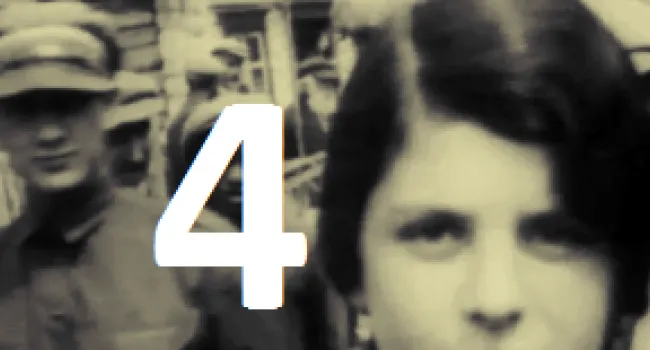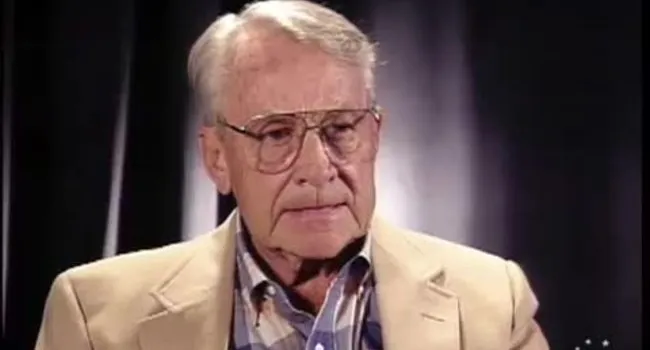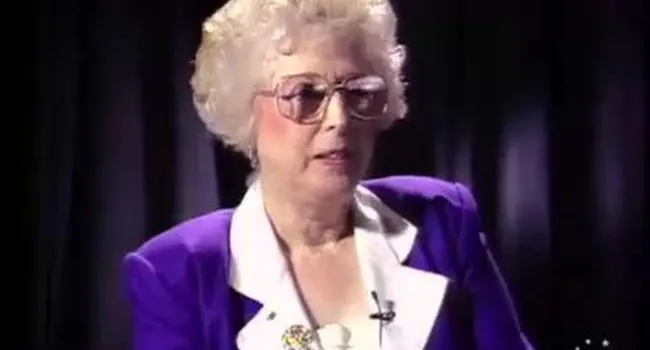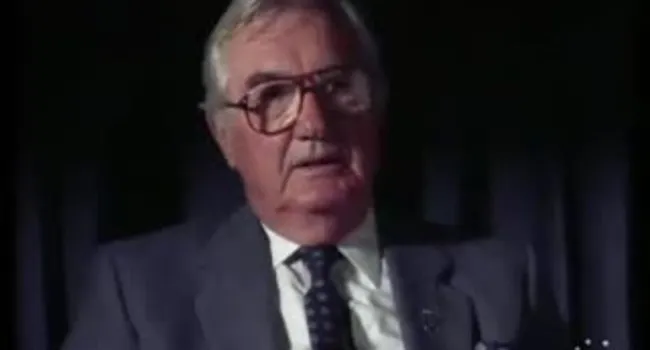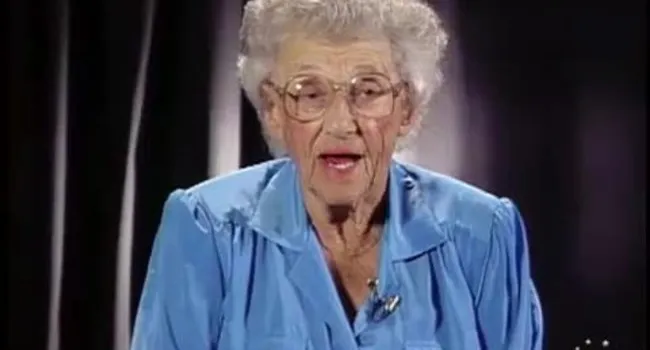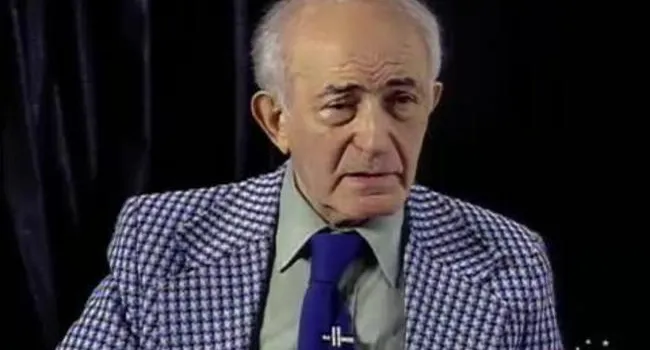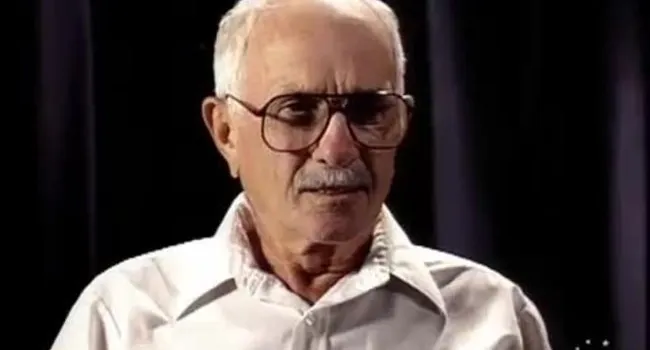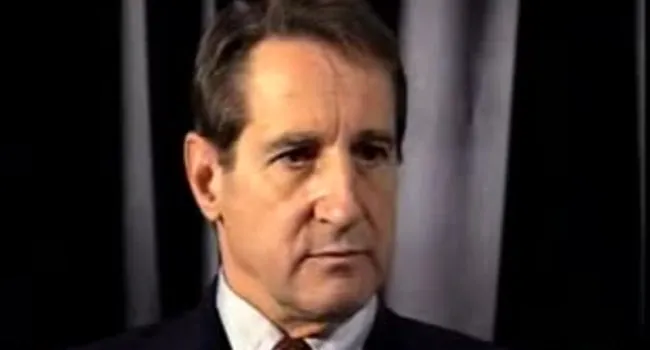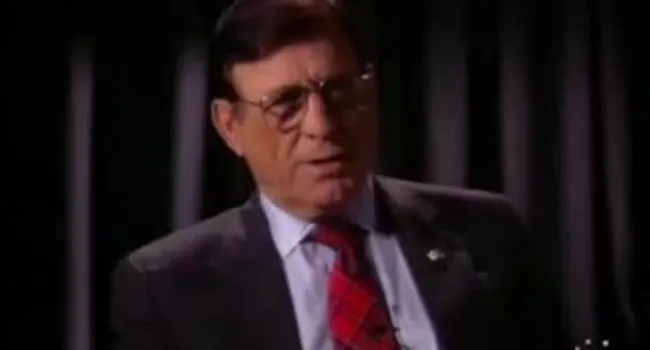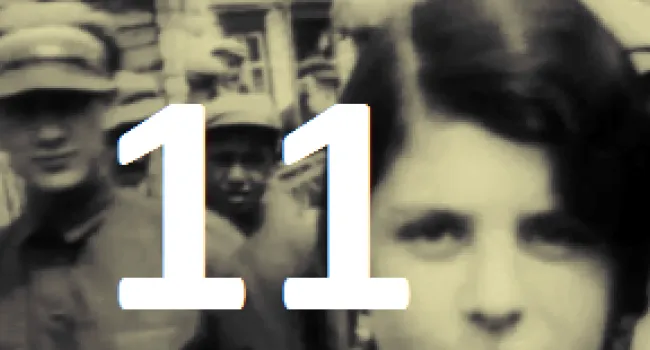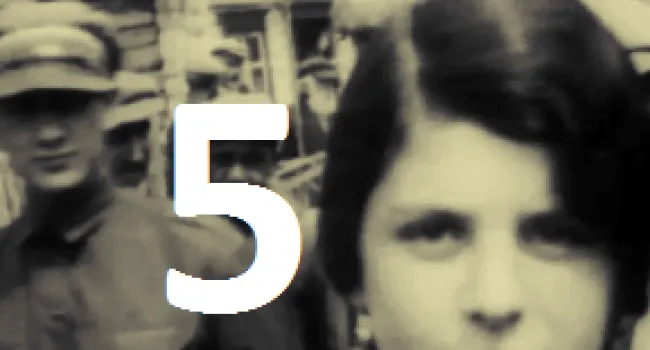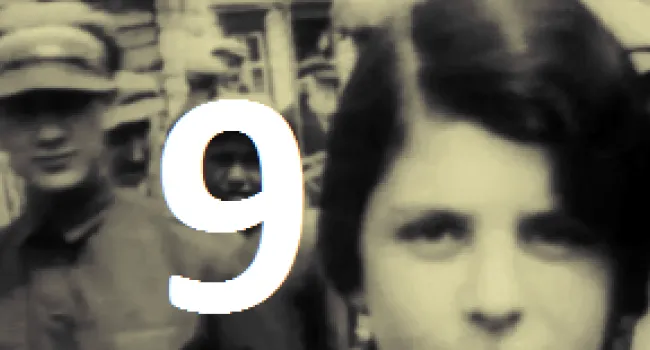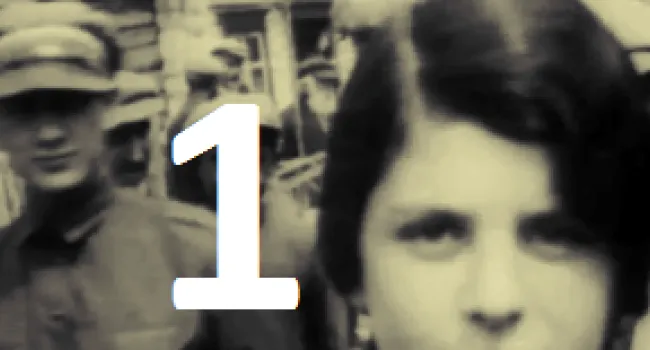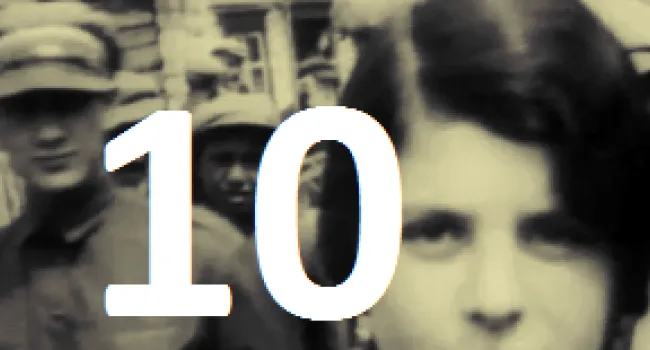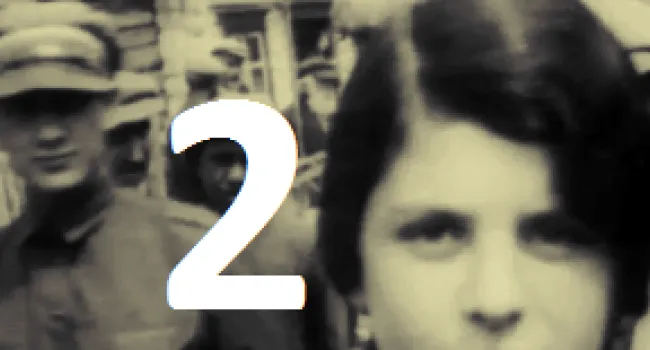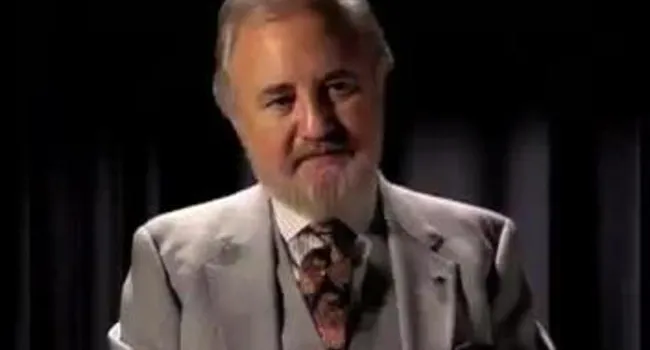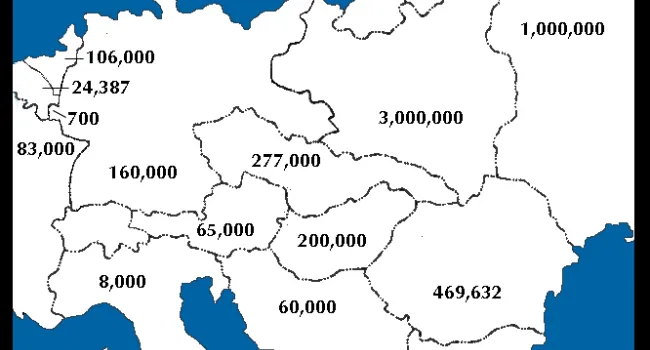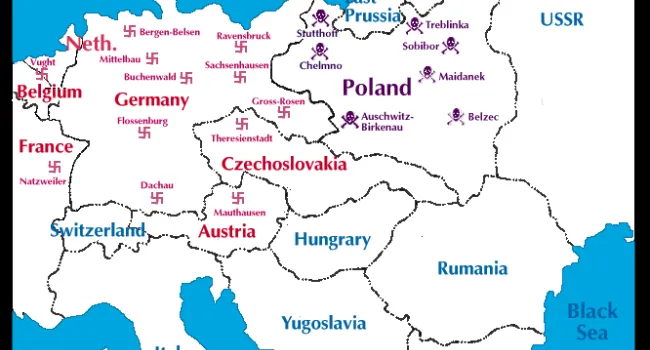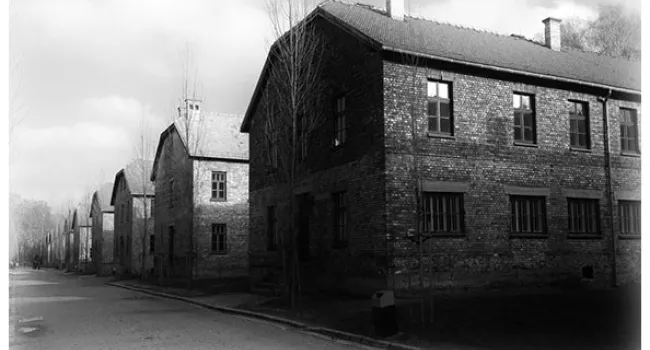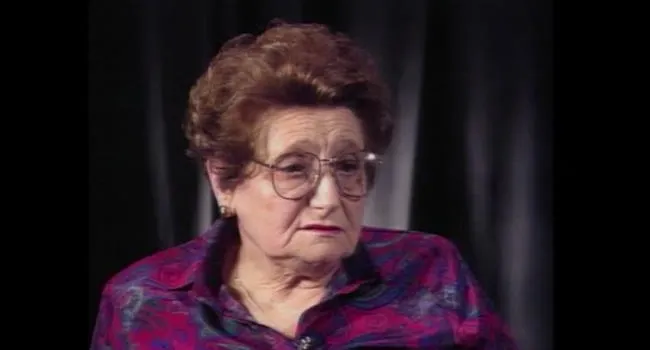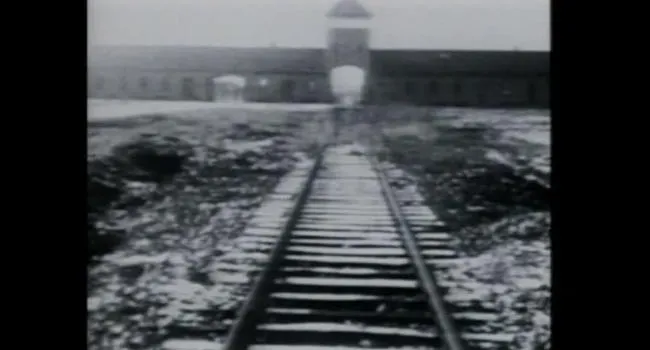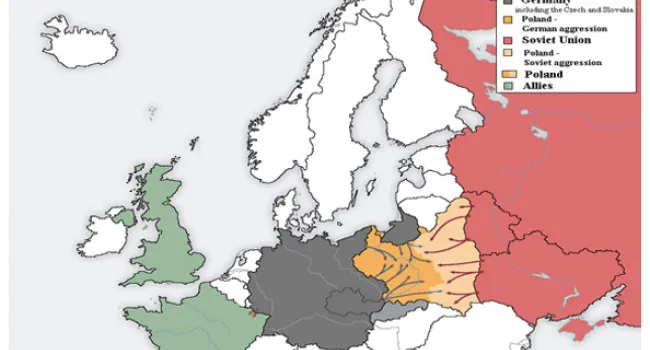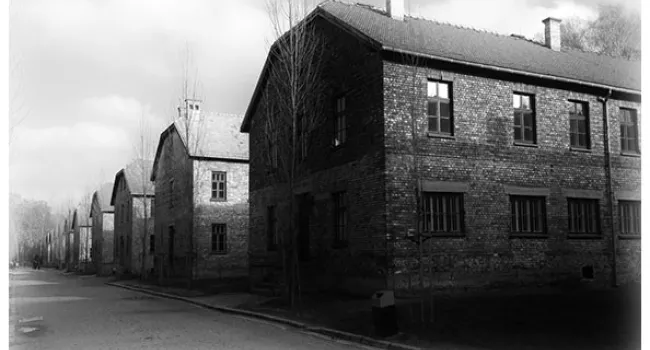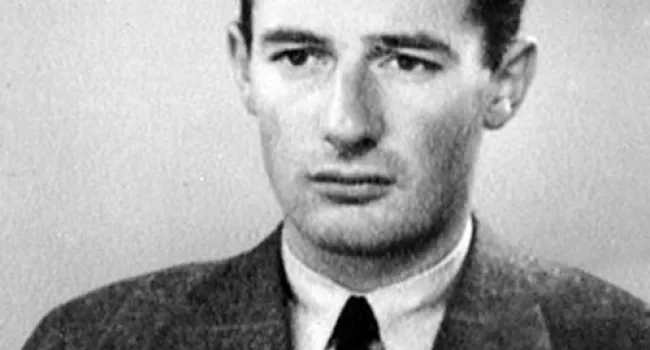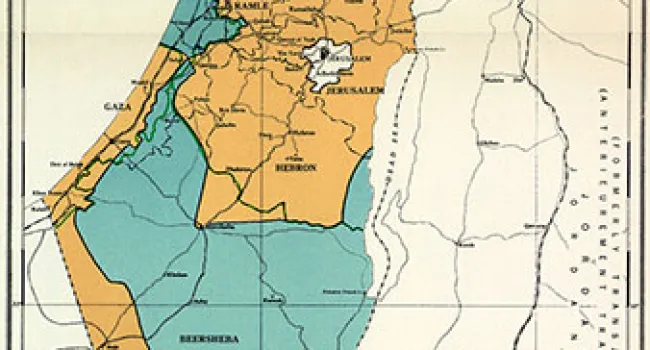Learn key terms from the Holocaust.
Anti-Semitism. Acts or feelings against Jews; takes the form of prejudice, dislike, fear, discrimination, and persecution.
Aryan. A term used by the Nazis to mean a superior race of Nordic-type white people who were the "master race." In fact, it is not a racial term, but the name of a family of languages, the Indo-European languages, which include German, English, and Greek.
Auschwitz. Largest and most notorious of all the concentration camps; was both a slave labor camp and a death camp.
/
Collective Responsibility. The act of holding a group responsible for the actions of any of its individual members.
Concentration Camp. A prison camp where the Nazis sent people considered by them to be dangerous. Although these camps were officially considered labor camps, the people in them were not expected to survive. Prisoners were worked to death or starved to death. Over 100 of these camps existed. The larger camps included Auschwitz, Bergen-Belsen, Belzec, Chelmno, Dachau, Maidanek, Sobibor, Treblinka.
Crematorium. A large oven or furnace where bodies of death camp inmates were burned after gassing.
/
Death Camp. A camp whose basic purpose was to kill Jews. Gas chambers were built especially for that use. There were six death camps, all in Poland. Auschwitz was the largest camp. It was both a death camp and a concentration camp.
Deportation. Forced removal of Jews in Nazi-occupied lands from their homes under pretense of resettlement. Most were shipped to death camps.
Displaced Persons Camp. Camps set up after World War II by the Allies to house Holocaust survivors and other refugees who had no place to go home to. A temporary arrangement until the DPs could immigrate or return to their native lands.
/
Final Solution. The Nazi term for their plan to exterminate all European Jews. The full name is written, "The Final Solution of the Jewish Question."
Fuehrer. Title taken by Hitler, German word for leader.
/
Gas Chamber. A room that was sealed off and airtight so that death could be induced through the use of gas.
Genocide. Term created after World War II to describe the systematic murder of an entire political, cultural, or religious group. The Nazis used the phrases Final Solution, special treatment, and resettlement as euphemisms for genocide.
Gestapo. The secret police organization in Nazi Germany; created to eliminate political opposition. Terror, arrest, and torture were main methods used.
Ghetto. An area of a city in which Jews were forced to live until they were transported to a concentration or death camp.
/
Holocaust. The systematic, planned extermination of 6 million European Jews by the Nazis during World War II. Many non-Jews perished in the Holocaust. The word is derived from the Greek term meaning "burnt whole."
/
Kristallnacht. German term for "Night of Broken Glass," which took place in Germany and Austria on November 9 and 10, 1938. Nazi police smashed Jewish synagogues, houses, and shops. This event signaled the beginning of the Nazi effort to exterminate the Jewish people.
/
Liberated. Set free.
Liberators. Soldiers who freed the inmates of concentration camps.
/
Mein Kampf. Hitler's autobiography and political theories published in 1925. Sometimes referred to as the bible of the Nazi party.
/
Nazi. Name used to identify members of the National Socialist German Workers Party, a German fascist political movement which ruled Germany from 1933 to 1945 under Adolph Hitler.
Nuremberg Laws. In 1935, Hitler established anti-Semitism as a part of Germany's legal code through these laws. Laws excluded Jews from German society, deprived them of their citizenship, removed them from jobs, and expelled them from schools and universities.
Nuremberg Trials. A military tribunal set up by the United States, Britain, France, and the Soviet Union, which met in Nuremberg, Germany, from November 1945 to October 1946 to try high-ranking former Nazi leaders.
/
Partisan. A member of a guerrilla band operating within enemy territory.
Pogrom. A brief, planned surprise attack against a Jewish community.
Prejudice. An opinion formed before the facts are known. In most cases these opinions are founded on suspicions, ignorance, and the irrational hatred of other races, religions, or nationalities.
/
Reichstag. One of the two houses of the German legislature or parliament.
Reparations. The money and goods paid by Germany to the Allies after World War I.
Resistance. Acts of rebellion, sabotage, and attempts to escape committed by individuals and groups within the camps and ghettos.
Righteous Among the Nations/Righteous Gentiles. A Christian honored at Yad Vashem in Israel for risking his or her life to save a Jewish person during the Holocaust.
/
"SS." Members of Hitler's elite force of German storm troopers. Abbreviation for Schutzstaffel or protection squads. Responsible for carrying out Hitler's Final Solution. Controlled the concentration and death camps.
St. Louis Incident. In May 1939, the ship St. Louis left Germany with 937 Jewish refugees seeking asylum in the Americas. Most were denied entry and 907 had to return to Europe where they died at the hands of the Nazis.
Scapegoat. A person, group, or thing that bears the blame for the mistakes or crimes of others. Hitler blamed the Jews for Germany's defeat in World War I and its post-war troubles.
Survivor. Person who survived Nazi persecution from 1933 to 1945.
Swastika. Symbol of the Nazi Party adopted in 1920. It is actually an ancient symbol dating back about 6,000 years. It is now banned in Germany.
Synagogue. Jewish house of worship.
/
Third Reich. The German word reich means empire. The Nazis called their government the third empire. The first was the Holy Roman Empire and the second was the German Empire.
/
Underground. A group organized in strict secrecy among citizens in an occupied country for maintaining communications and initiating activity that will lead to the removal of the occupier.
/
Yellow Star. The six-pointed Star of David made of yellow cloth and sewn to the clothing of European Jews to permit easy identification.
Standards
- 5.3 Demonstrate an understanding of the economic, political, and social effects of World War II, the Holocaust, and their aftermath (i.e., 1930–1950) on the United States and South Carolina.
- 6.5.CE Explain the impact of nationalism on global conflicts and genocides in the 20th and 21st centuries.
- 7-4 The student will demonstrate an understanding of the causes and effects of world conflicts in the first half of the twentieth century.
- The influence of both world wars and the worldwide Great Depression are still evident. To understand the effects these events had on the modern world, the student will utilize the knowledge and skills set forth in the following indicators:
- 7-4.5 Summarize the causes and course of World War II, including drives for empire, appeasement and isolationism, the invasion of Poland, the Battle of Britain, the invasion of the Soviet Union, the "Final Solution," the Lend-Lease program, Pearl Harbo...
- 7-4.6 Analyze the Holocaust and its impact on European society and Jewish culture, including Nazi policies to eliminate the Jews and other minorities, the Nuremberg trials, the Universal Declaration of Human Rights, the rise of nationalism in Southwest...
- The influence of both world wars and the worldwide Great Depression are still evident. To understand the effects these events had on the modern world, the student will utilize the knowledge and skills set forth in the following indicators:
- USHC-7 The student will demonstrate an understanding of the impact of World War II on the United States and the nation’s subsequent role in the world.
